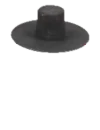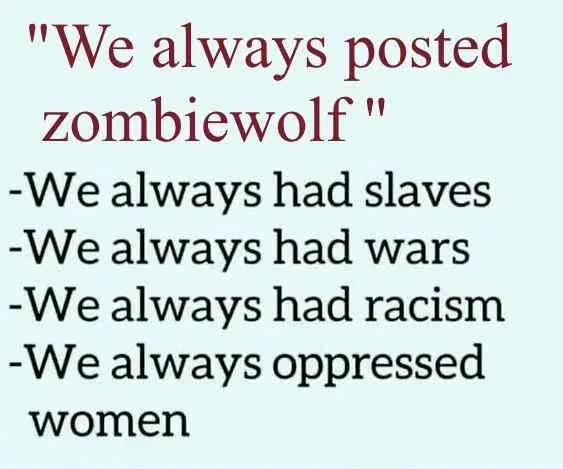When Kaamrev was working on his recent post about the sinking of the ferry MV Sewol I told him I might try writing about President Park Geun Hye's role that day. But when I thought about it I realized that story ties into so much of the rest of her life, I might as well just write about all of it. Maybe one post on the cult stuff, one on the ferry, and one on the impeachment.
But to set all that up I really need to first explain her father because he was a huge influence on her (and all of Korea). This is going to be lots of words words words without too much drama until the end, but I've tried to keep it pared down to just what I need to tell to set up his daughter's more dramatic story.
@JoyceCarolOates just made this. I love it so much.
Early Life
Park Chung Hee was in 1917. He managed to escape poverty by joining the army of Japan's Manchurian puppet state. He went on to study at Japan's military academy and briefly serve as an officer during WW2. Returning home, he was accepted into the South Korean army but thrown out in 1948 on suspicions of being a pinko. When war broke out he was called back to service, rising to the rank of brigadier general.
Park in Manchukuo uniform.
The postwar years were bleak for South Korea. Most of the country's infrastructure was destroyed and the government was too corrupt and ineffective to rebuild. There was hardly any economy apart from collecting US aid. In 1960 the government collapsed as the army and police refused to shoot protesters. Real democracy was introduced, but this only made the situation more chaotic as factions bickered with each other.
Korea was far from alone. Democracies around the world were failing, plagued by corruption, incompetence, and factionalism. Most third world democracies would be overthrown in military coups during the 1960s. Even France had its own in 1958. While we tend to assume today that democracy is always better than dictatorship, that was far from an obvious conclusion to make at the time.
Manlets in sunglasses rise up! Park in the middle.
In 1961 Park made his move. It was a textbook military coup. He plotted with fellow officers who had been his classmates at military academies and together they made a sudden move to seize the capital. The army at all levels from generals to ordinary conscripts supported him or stood out of the way. The public's reaction ranged from apathy to enthusiastic support. A junta of military officers was formed but Park quickly moved to eliminate all potential competition and take power for himself.
More manlets in junta drip.
President Park
I know what you're expecting to happen now. The dictator and his cronies immediately loot everything that isn't nailed down. They turn out to be even more corrupt and incompetent than their predecessors. Their secret police run rampant. The economy crashes. Minorities are scapegoated. Maybe they start a foreign war to distract from domestic problems. But that's where we run into a plot twist. Some of those things partially happened but they're not the real story.
I guess everyone has sunglasses.
Kennedy was president and the struggle between democracy and communism in Asia was one of his main priorities. He wasn't about to be embarrassed by Korea turning into a dictatorship so he insisted that they have an election. Park had no choice since he was so dependent on American economic and military aid. But he won the election and that gave him the legitimacy to carry out aggressive reforms.
Korea had once been among the most dynamic, innovative, technologically advanced nations in the world. That was in the 1400s. Centuries of stagnation followed with a rigid caste system run by yangban scholars (the guys with the big hats) jerking each other off about Confucius and poetry. Finally at the end of the 1800s Koreans desperate for reform basically invited the Japanese to take over because it was the only hope of breaking the deadlock. Unfortunately the Japanese are weirdo perverts and tried to forcibly assimilate and destroy the Korean nation, but let's be honest. They did a lot to turn it into a modern country.
Korea back in the glory days. I had to work Jang Geum into this somehow.
I mention this because Park was educated by the Japanese and spent time in Japan itself. He got first hand exposure to an Asian country that was industrialized and had its shit together. After that he served in the war alongside the US Army and saw the immense capabilities of a modern country with a vast economy and competent well-organized people. And he saw how the South Korean army through training and experience was able to approach that level of competence in just a couple years.
He saw what was possible for Korea if it modernized. Decisions wouldn't be made by elderly men wearing goofy hats sitting on pillows. It would become a nation with steel mills and tanks and oil refineries and jet fighters and television. Park had a vision of the future and enough experience with other cultures to see how to achieve it. But notice that this experience is in the military, much of it with the Japanese, who had a rigidly hierarchical culture where you slap the shit out of whoever is beneath you.
ROKAF F-4D, 1979.
The Miracle
So if Park isn't your stereotypical evil dictator, what did he do?
Under his leadership the "Miracle on the Han River" began, the period from the mid 1960s-mid 1990s when South Korea's economy developed perhaps more rapidly than any other nation ever in history. He didn't bring in ivory tower economists from some foreign university to try experimenting with their theories. The prevailing idea at the time was " import substitution", making stuff inside your own country so you don't have to import it.
Park's approach was much more pragmatic, following Japan's example of an export driven economy. Instead of making what you want, make the stuff you're good at making and sell it overseas to get money to buy what you need. Also he didn't have any particular religious fervor for socialism or libertarianism. Certain companies were given preferential loans and expected to follow the government's long term plans for economic development but there wasn't the kind of centralized micromanagement that was so crippling in the Communist Bloc and many third world countries. Unlike many industrializing economies, Park's regime also paid careful attention to rural areas and made sure they were not completely left out of the country's rising prosperity.
Part of the vast POSCO steel complex at Pohang, built with Japanese assistance in the 1970s.
Of course somebody had to pay for all this investment. A lot of money poured in from the USA in the form of aid but also through the large US military presence in the country. South Korea was compensated well for sending 350,000 troops to fight in Vietnam and Korean companies profited from construction work there. But the biggest contribution came from Japan. In 1965 Park signed a controversial peace treaty, accepting $800 million in reparations over the next decade, which was actually a lot of money at the time. Victims of Japanese oppression and slavery were understandably offended that instead of being compensated the money went into building steel mills for rich people, but it did jumpstart an economic miracle.
Pretty big gun for this dude.
The Miracle Ends
Park remained popular through the 1960s but some parts of the population never warmed up to him. He was ruthless in crushing all opposition. While certainly not as bad as most of his contemporaries, he did have opponents tortured and sometimes killed. North Korean spies really were crawling all over the country and trying to assassinate him, so it was easy to accuse someone of being a communist and make them disappear.
It was not enough to prevent the opposition from gaining strength and in 1971 they came dangerously close to winning the election. The following year he carried out a self-coup and rewrote the constitution to essentially make himself dictator for life. Repression grew much more severe as Park relied on the military and Korean Central Intelligence Agency to keep his hold over an increasingly unruly population. A new generation born after the war was now growing up and they were much less ready to accept military rule. The economy was still booming but there was great resentment over how much of the new wealth was controlled by the chaebol, a few dozen families of Park cronies.
By 1979 Park had reached a crossroads. Protests were growing even in his hometown of Busan. He would have to either use violence on a massive scale to put them down or try to compromise. The first option was supported by Cha Ji Chul, chief of his bodyguard, who had grown close to him after his wife was killed in a failed assassination attempt in 1974. Cha pandered to Park's authoritarian tendencies, egging him on to kill the protesters.
Cha Ji Chul.
On the other side was Kim Jae Gyu. (This is a rare moment in Korean history where three people are together and they all have different family names.) Kim was an old friend of Park since their days in the Korea Military Academy after WW2. He was now head of the Korean Central Intelligence Agency, in charge of the government's mechanism for spying on and subverting the opposition. But he was not happy in his job. He had long advised Park to ease his grip on power and return to a more democratic government. He resented having to do the dirty work of the increasingly illegitimate Park regime.
Kim Jae Gyu.
This may have remained a mere policy dispute were it not for Cha being a total peepeehead. He went out of his way at every opportunity to sabotage Kim's work and insult him in public. This was especially galling as in Korea at the time a man was supposed to owe some deference to those who had been higher ranking in the military even in civilian life. Kim had been a lieutenant general. Cha had been a lieutenant colonel. He hadn't even been old enough to fight in the war. Kim was infuriated that this uppity zoomer had gained the ear of his old friend the president and was poisoning his mind.
This singer, Shim Su Bom, sang this song at the dinner and witnessed the assassination.
One night at a dinner attended by Park, Kim, Cha, and a few others, Kim finally snapped. There is still much debate over exactly what was going on in his mind, but apparently he had wanted to kill Cha for a long time. At dinner they came back to the same argument, with Cha calling for a massacre of the protesters and Park taking his side. At this point Kim leaves and tells a few subordinates he's had enough. He's going to kill Cha tonight. Also Park too but that's almost an afterthought. He returns to the dinner with two guns and shoots them. Unfortunately he has done very little to actually organize a coup and he is quickly captured and executed. Soon an even worse military dictator seizes power.
Legacy
When Park's wife was killed in 1974, his daughter Park Geun Hye returned from studying overseas to carry out the ceremonial duties of the First Lady. These formative years of her life were also the most autocratic of her father's reign and she can't help but have been influenced. We will see more of her in the future.



















Jump in the discussion.
No email address required.
Fun fact: you can see exactly what would have happened had South Korea not industrialized by looking at North Korea today.
Jump in the discussion.
No email address required.
North Korea was actually the more industrialised of the two for a while, even their beer was better.
This industrialisation was piggybacking off imperial Japanese work and soviet subsidies, though, once the cold war ended the north Korean economy was unable to cope with competition
Jump in the discussion.
No email address required.
The NK is still one of the biggest arms and war material manufacturer in the world tho. North Korea has a stupid amount of metals deposits
Jump in the discussion.
No email address required.
More options
Context
More options
Context
More options
Context